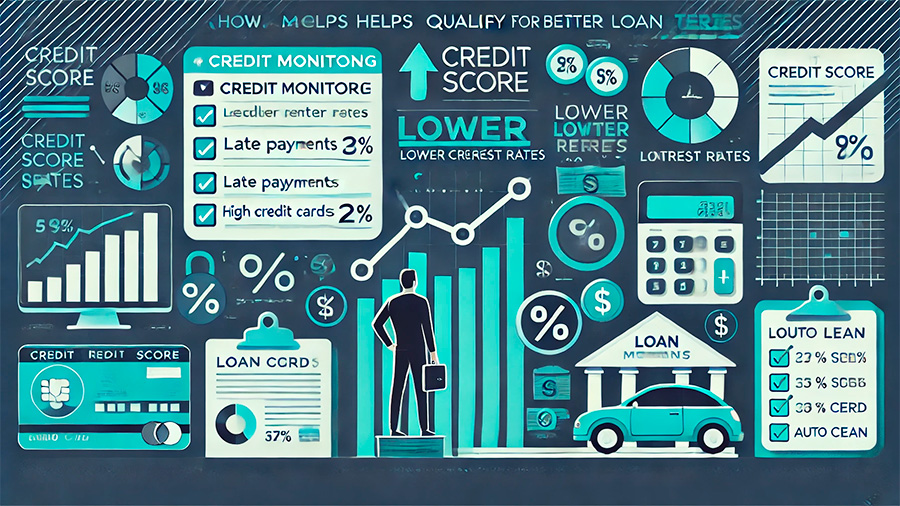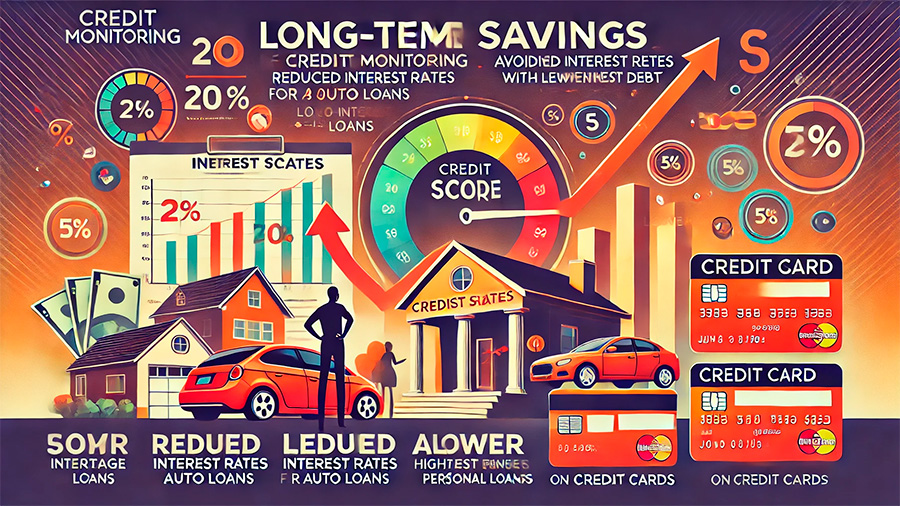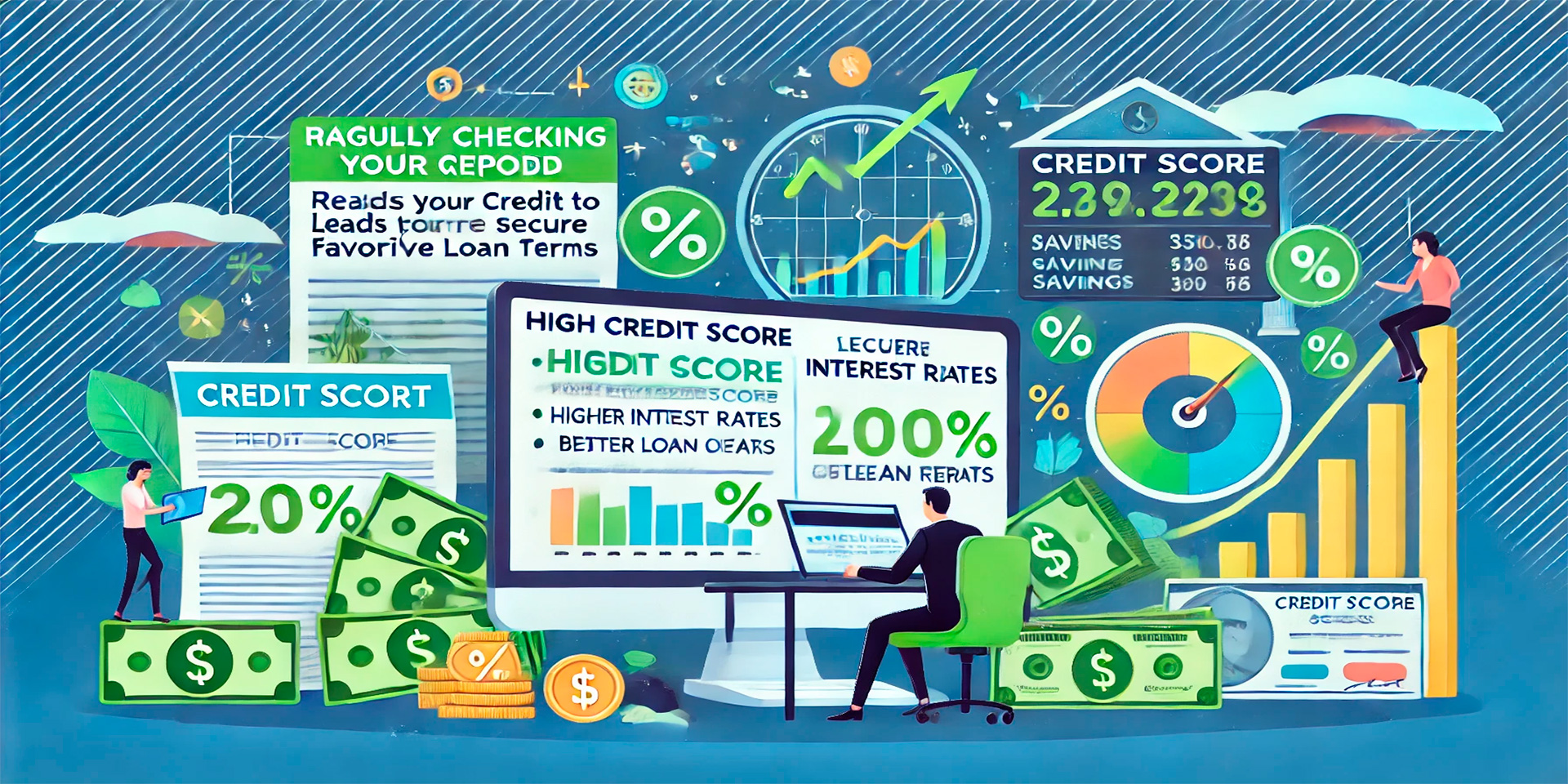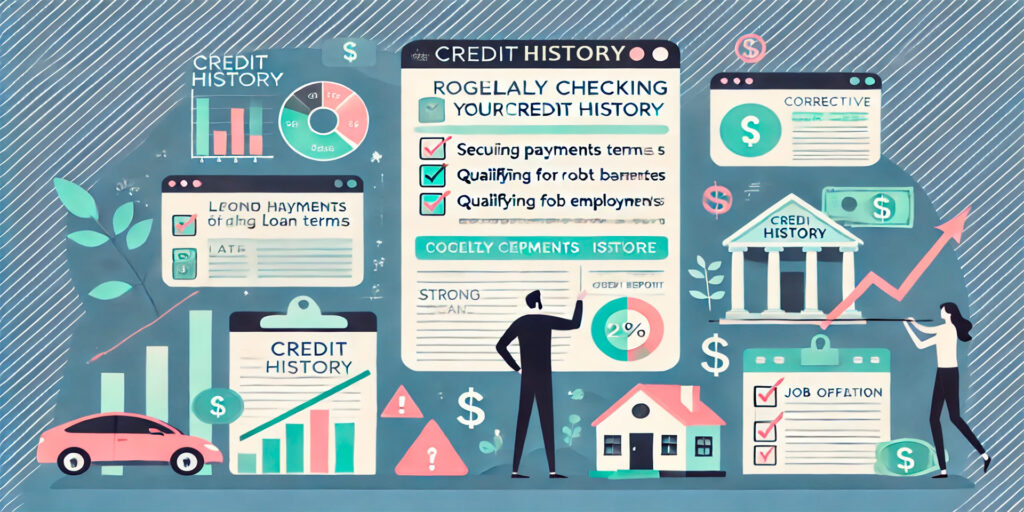Monitoring your credit is one of the most effective ways to ensure that you’re in the best position to secure favorable loan terms. Regularly checking your credit report allows you to stay informed about your credit status, catch potential errors, and address any issues before they negatively impact your financial future. By keeping an eye on your credit, you can improve your chances of qualifying for lower interest rates and better loan offers, ultimately saving you money over the life of a loan.
Your credit score is a key factor that lenders use to determine the terms of your loan, including the interest rate, loan amount, and repayment options. A higher credit score usually results in lower interest rates, which can lead to significant savings on long-term loans like mortgages and auto loans. Monitoring your credit gives you the insight and control needed to maintain or improve your credit score, ensuring that you’re always prepared to secure the best possible loan terms.
The Benefits of Regular Credit Monitoring
Regularly monitoring your credit report offers several important benefits. First and foremost, it allows you to catch errors that could be damaging your credit score. Mistakes on credit reports are not uncommon, and they can have a serious impact on your ability to qualify for favorable loan terms. By checking your credit report periodically, you can identify inaccuracies—such as incorrect account information or unauthorized transactions—and take steps to have them corrected before they affect your creditworthiness.
Another major benefit of credit monitoring is that it helps you stay on top of your credit utilization and debt levels. Credit utilization, which refers to the amount of credit you’re using compared to your total credit limit, is a major factor in determining your credit score. If your credit utilization is too high, it can lower your score and make it harder to qualify for loans with low interest rates. By monitoring your credit, you can keep an eye on your credit utilization ratio and make adjustments as needed to keep it in a healthy range.
Finally, credit monitoring can help you detect signs of identity theft or fraud early. Unauthorized activity on your credit report can not only damage your credit score but also lead to significant financial losses. By catching fraudulent activity early, you can minimize the damage and protect your financial health.

How Credit Monitoring Helps You Secure Better Loan Terms
One of the most immediate ways that credit monitoring can save you money is by helping you qualify for better loan terms. Lenders rely heavily on your credit score when determining the interest rate they’ll offer you. The higher your credit score, the lower your interest rate will likely be, resulting in lower monthly payments and a reduced overall loan cost.
For example, if you’re applying for a mortgage, even a slight improvement in your credit score can lead to a lower interest rate, which can save you thousands of dollars over the life of the loan. The same applies to auto loans, personal loans, and credit cards—having a strong credit score gives you access to the best available interest rates, which translates into significant savings.
Regular credit monitoring allows you to track your progress and take proactive steps to improve your score before applying for a loan. By addressing issues such as high credit card balances or late payments, you can boost your score and increase your chances of securing better loan terms.
Steps to Take When Monitoring Your Credit
To get the most out of credit monitoring, it’s important to follow a few key steps. First, check your credit report from all three major credit bureaus—Equifax, Experian, and TransUnion—at least once a year. Each bureau may have slightly different information on file, so reviewing all three reports gives you a complete picture of your credit health. You can obtain free copies of your credit reports from AnnualCreditReport.com.
When reviewing your credit report, pay close attention to any errors or discrepancies. If you find mistakes, such as incorrect account information or outdated credit data, file a dispute with the credit bureau to have the issue resolved. Correcting errors on your credit report can lead to an immediate improvement in your credit score.
In addition, focus on managing your credit utilization by paying down credit card balances and keeping your outstanding debt as low as possible. Aim to keep your credit utilization ratio below 30% to maintain a healthy credit score. If you’re carrying high balances on multiple credit cards, consider consolidating your debt to make it easier to manage and reduce your credit utilization.

How Monitoring Your Credit Saves You Money
The long-term savings that come from credit monitoring can be significant. By ensuring that your credit score remains strong, you can consistently qualify for loans with lower interest rates, which reduces the amount you’ll pay in interest over time. For example, if you’re buying a home with a 30-year mortgage, even a small reduction in the interest rate can save you tens of thousands of dollars over the life of the loan.
Similarly, lower interest rates on auto loans and personal loans mean more affordable monthly payments and less money spent on financing. For credit cards, monitoring your credit can help you avoid high-interest debt and take advantage of lower-rate offers or balance transfer promotions.
Building Long-Term Financial Stability Through Credit Monitoring
Regular credit monitoring is an essential part of building and maintaining long-term financial stability. By staying informed about your credit status, you can avoid financial pitfalls, such as falling behind on payments or accumulating too much debt. It also allows you to make smarter borrowing decisions, as you’ll have a clearer understanding of when you’re in the best position to apply for a loan and what terms you can reasonably expect.
In addition to the immediate benefits of securing better loan terms, credit monitoring helps you cultivate responsible financial habits that lead to long-term success. It encourages you to stay on top of your credit utilization, make timely payments, and resolve credit issues promptly. These habits not only improve your credit score but also contribute to a healthier financial outlook overall.
Conclusion
Monitoring your credit regularly is a simple yet powerful way to save money on loans. By staying informed about your credit score, catching errors, and addressing potential issues early, you can improve your chances of securing lower interest rates and better loan terms. This proactive approach to credit management not only helps you save money but also sets you up for long-term financial success by promoting responsible borrowing and credit habits.









